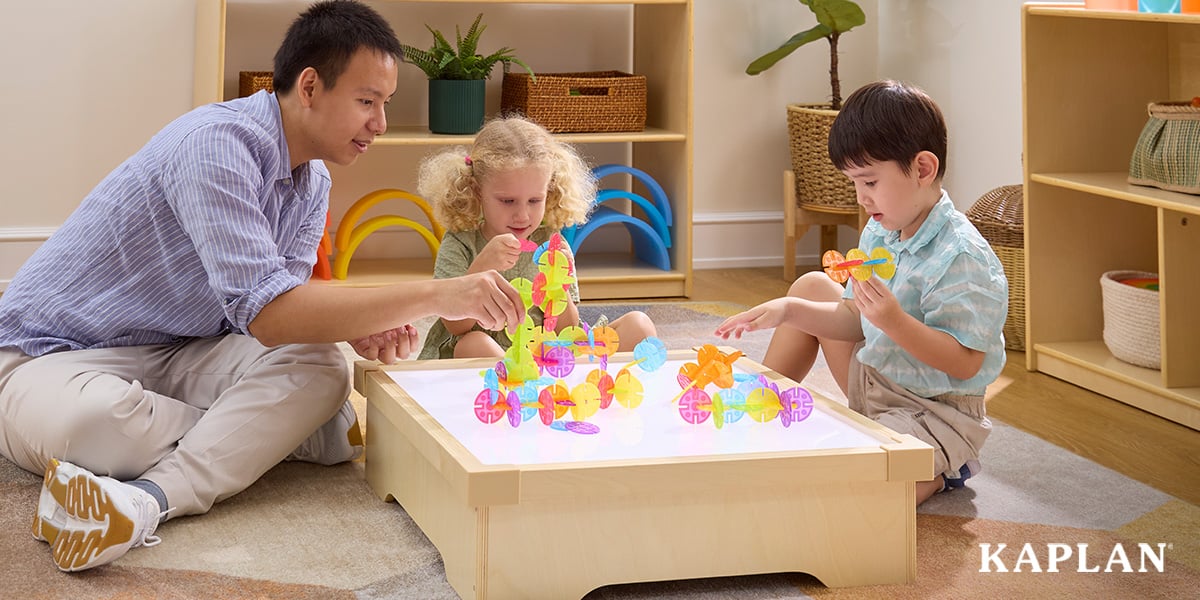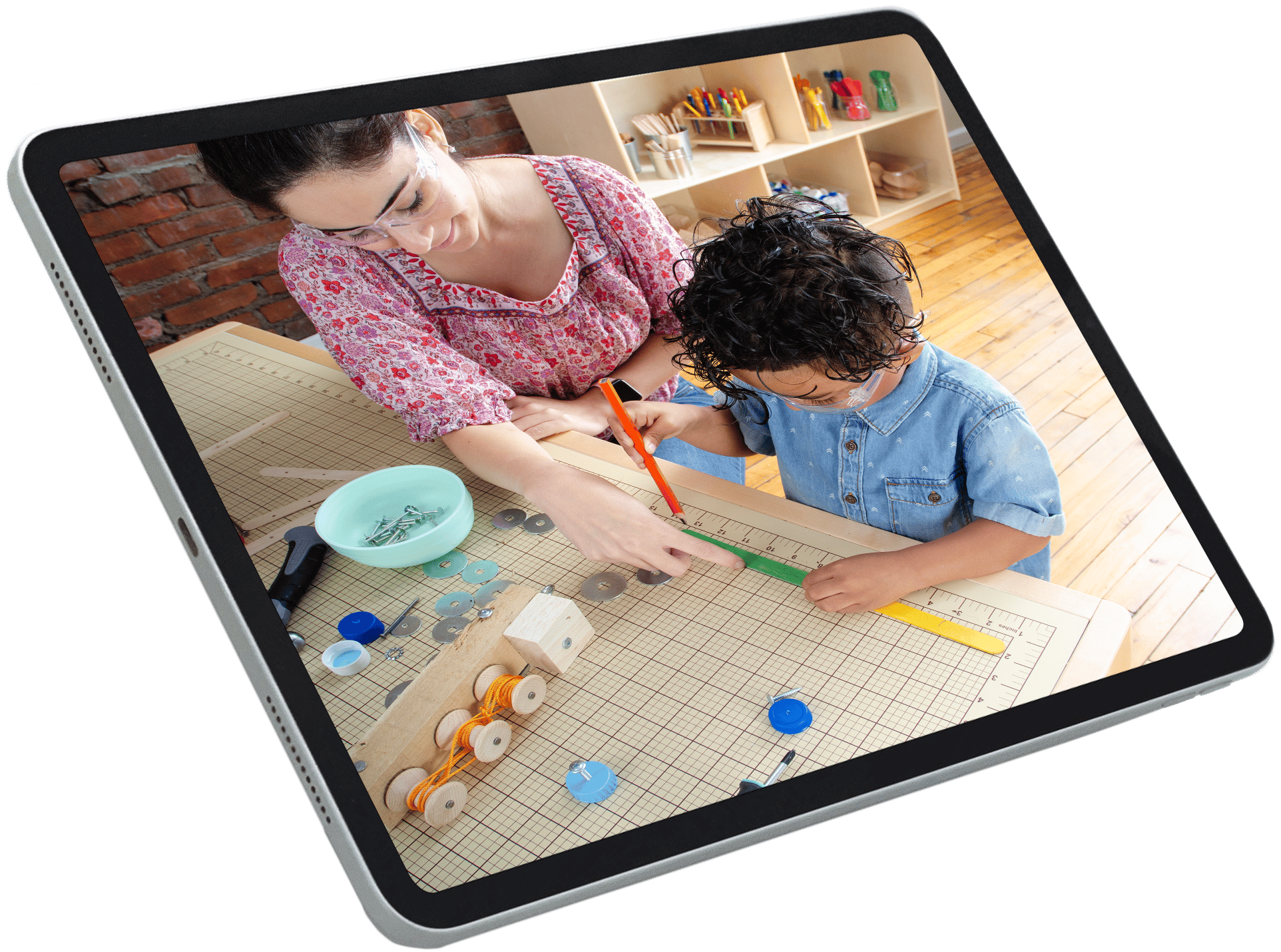A toddler who struggles to share. A preschooler who has frequent meltdowns. It's easy to brush these off as just "phases." But sometimes, they can signal deeper social-emotional challenges.
Behavior alone doesn’t tell the whole story. How can you understand where a child is in their social-emotional growth? How do you tell the difference between age-appropriate behavior and signs a child may need extra support? What’s the best way to support a child who’s struggling with skills, like sharing, following directions, or managing big feelings?
Social-emotional assessments provide valuable insights into these questions. They offer a clear picture of each child’s skills and help you track their growth over time. Some assessments take it a step further by showing how to build core social-emotional skills through everyday teachable moments.
Still not convinced? Read on to learn why social-emotional assessments matter in early childhood. We cover what they measure, how they support healthy development, and what to look for when choosing the right tool for your program.
What are social-emotional assessments?
Social-emotional assessments are tools that measure a child's social-emotional development. They look at key skills like self-control, social interaction, emotional awareness, and problem-solving. Assessment results help educators and families understand how children:
- Recognize, express, and manage their emotions
- Build relationships with peers and adults
- Navigate and "bounce back" from challenges, and
- Cooperate and solve conflicts with others.
These tools identify a child’s social-emotional strengths and areas needing support. Rather than relying on assumptions, it gives precise data to target support where it’s needed most.
How are they conducted? Most assessments use questionnaires to assess a child's social-emotional skills. Teachers, caregivers, or family members complete them based on their observations of a child’s behavior. Other tools include interviews or structured observations, with evaluations occurring during regular activities like playtime, circle time, or group activities.
What is the difference between a screening and an assessment tool?
Screening tools are like a quick check-up. They’re brief, standardized measures that help identify children who might need a closer look at their development. They flag potential concerns but don’t give detailed information about a child’s strengths or skill gaps.
Assessments provide a deeper dive into a child’s social-emotional development. They measure a broader range of skills. Plus, they give detailed data that can help educators tailor instruction, plan targeted interventions, and track growth over time.
Both tools are valuable. Screenings are ideal for large groups or routine check-ins. Assessments, on the other hand, are better suited for in-depth insights into a child’s social-emotional growth to provide individualized support. Together, they offer a complete picture of their development, from early identification to ongoing monitoring.
What are the benefits of social-emotional assessments for early learners?
It’s important to recognize young children’s social and emotional strengths and challenges early, even during infancy. Early support gives them a strong start, shaping their success well into adulthood.
Social-emotional assessments show what children do well and where they might need support. They highlight the critical skills children are building or could improve, including:
Building emotional regulation: Recognizing and managing big emotions, like stress, disappointment, and excitement. They learn to express their needs in healthy ways, like showing frustration without lashing out.
Strengthening relationships: Making friends and forming trusting relationships with adults and peers. Early skills like sharing and taking turns lay the foundation for healthy relationships.
Developing independence: Trying new things, taking on new challenges, and growing independence. Examples include managing simple responsibilities and asking for help when needed.
Supporting long-term well-being: Developing skills that support lifelong mental health, learning, and relationships. Early intervention can prevent small challenges from becoming bigger problems later.
What are the benefits of social-emotional assessments for early childhood programs?
Beyond individual children, social-emotional assessments also inform and improve overall program quality. Most tools systematically collect and combine child data to reveal program-wide trends. These insights can then guide more intentional practices that meet the unique needs of each child and the entire group.
When used often and as intended, social-emotional assessments help early childhood leaders:
Improve program quality: Assessment results help you see trends across your program. You may notice that children struggle with transitions, or that certain age groups need more support with sharing. You can use these insights to adjust your classroom routines and environment to meet children's needs better.
Meet key standards: Quality rating systems, grants, and accreditation standards often require proof that programs are actively supporting children’s social-emotional development. Assessment data provides the documentation you need to demonstrate compliance while driving meaningful improvements.
Target instructional strategies: Social-emotional assessments deliver meaningful, program-specific insights, not general observations. Results help you apply specific strategies that address the actual needs you're seeing in your classrooms.
Support staff development: Spotting assessment trends lets you target training where your team needs it most. This targeted approach makes professional development more relevant and practical.
Strengthen family partnerships: Assessments help you gather clear information to share with families about their child’s growth. Providing these objective insights helps build trust and creates opportunities for families and teachers to work together on common goals.
As NAEYC notes, "The program uses assessment results to inform decisions about the children in their care, to improve teaching practices, and to drive program improvement." This callout captures exactly why these assessments matter. They're not just paperwork, but are also tools for creating better outcomes.
How do you choose the right social-emotional assessment for your program?
Many social-emotional assessments on the market can get the job done. But not every tool will meet your program's unique needs and standards.
Here's a framework for evaluating your options:
Is it developmentally appropriate? Social-emotional assessments should address specific age groups with realistic expectations for what children can do at each stage. A tool designed for preschoolers won't work well with toddlers, and vice versa.
Is it easy to use and implement? Look for tools with clear instructions that call for minimal training. The assessment should fit naturally into your existing routines without creating an extra burden for your staff.
Is it research-backed, reliable, and valid? Reliable tools give consistent results when used properly, while valid tools measure what they claim to measure. Look for assessments backed by peer-reviewed studies or longitudinal data that show the tool works as intended.
Is it culturally appropriate and responsive? Your assessment should honor the cultural and linguistic diversity of the children and families you serve. Be aware of potential bias in how behaviors are interpreted and make sure the tool works for all the children in your program.
Does it support practical application? The best assessments do more than collect data, helping you turn results into action. Look for tools that include strategies, planning guides, or resources to support children's growth based on their assessment results.
Use these questions to guide your decision and choose the social-emotional assessment that best fits your program’s needs.
Find the right social-emotional assessment for your early childhood program.
Social-emotional assessments are powerful tools for supporting children's development. At the same time, they can help improve program quality and meet the requirements that programs face today. They allow you to identify strengths to build on and catch concerns early. They also guide targeted strategies that make a real difference in children’s lives.
At Kaplan, we offer a variety of assessment and evaluation tools to track children’s social-emotional growth. Some focus specifically on social-emotional skills, while others provide a broader view of development across multiple domains.
Assessing social-emotional development in early childhood will pay off in many ways. It leads to improved child outcomes, stronger program quality, and the confidence that comes from using proven tools. Ultimately, early, ongoing assessment equips you to support every child's success in school and beyond.


